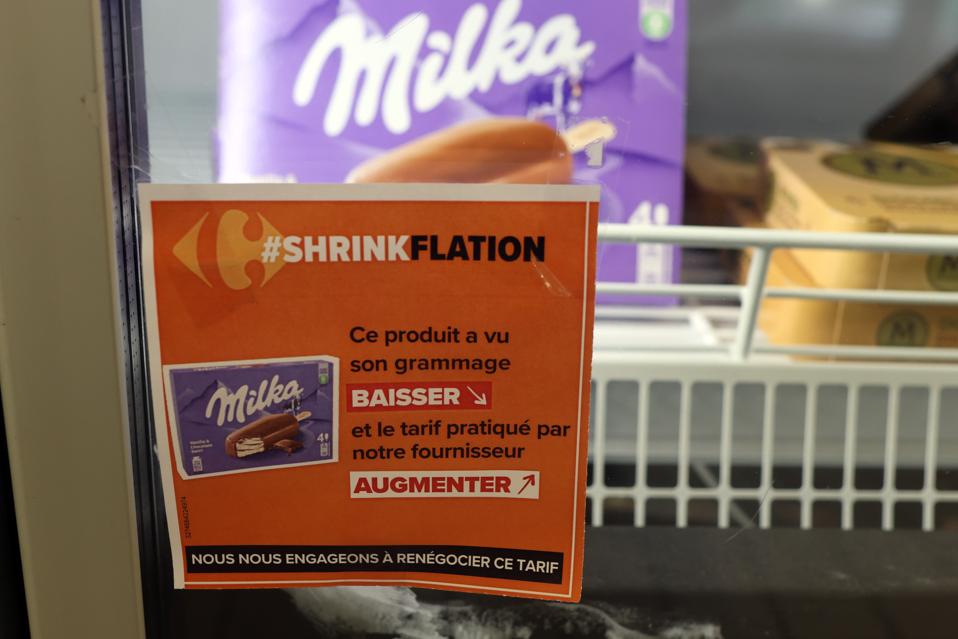In another of its bold moves that underscores the company’s commitment to purpose-driven and ethical business practices, French grocery giant Carrefour has halted the sale of Pepsi products due to unacceptable price increases. The move is in addition to their late 2023 decision to physically highlight the sneaky tactic of “shrinkflation” in their grocery stores. This two-pronged approach by France’s second-largest grocer is not just a retail strategy; it’s a loud message about the role of corporations in society and the importance of purpose-driven, ethical leadership.
The decision to stop selling Pepsi products comes amid rising food prices that have hit consumers hard. PepsiCo’s price hikes, which the company attributes to increasing costs, have led Carrefour to draw a line in the grocery aisle, prioritizing consumer interests over supplier relationships. In a statement, PepsiCo retaliated: “We’ve been in discussion with Carrefour for many months and we will continue to engage in good faith in order to try to ensure that our products are available.”
Carrefour’s move is significant, signalling a refusal to pass on undue cost burdens to customers. It’s a stance that echoes a broader and global societal concern about the rising cost of living, and Carrefour is effectively using its market influence to advocate for more reasonable pricing practices. Of note, in Canada, a parliamentary committee has been working on a “grocery code of conduct” to avoid such situations, with various grocery CEOs being called to parliamentarian committees to explain their pricing practices. (It’s not going all that well for the CEOs.)
Carrefour’s previous 2023 campaign against shrinkflation—reducing product size while maintaining or increasing prices—further cements the firm’s position as a champion of transparency and fairness. By openly flagging products that have succumbed to this practice, including those from PepsiCo, Carrefour is not just advocating for fair pricing but also for honest communication with consumers. This dual approach to addressing price hikes and shrinkflation demonstrates a comprehensive commitment to their customers.
I often discuss the balance between profitability and purpose in my work. Carrefour’s actions reflect this purpose-driven balance. While the supermarket chain faces the challenge of maintaining profitability, its decisions show a deep understanding that long-term success is rooted in trust and loyalty. By standing up against price increases and shrinkflation, Carrefour continues to build its reputation as a brand that consumers can trust to act in their best interest. It does them huge favors with French politicians, too.
However, this stance is not without its complexities. On the one hand, it’s a robust statement against cost-passing practices; on the other, it risks straining supplier relationships and potentially limiting consumer choice. For instance, the decision to delist Pepsi products might inconvenience Pepsi loyalists. Calling all Doritos lovers. Yet, it’s a calculated risk that underscores a more significant commitment to their overall relationship with customers.
This situation also highlights the intricate dynamics between retailers and suppliers. While retailers like Carrefour seek to offer value and fairness to their customers, suppliers (like PepsiCo) are grappling with their own rising costs and economic pressures. It’s a delicate and interwoven business model where actions by one party can significantly impact the other.
Carrefour’s stand, therefore, might also be a call for more equitable and transparent negotiations between retailers and suppliers, aiming for solutions that don’t unfairly burden the consumer. I can only assume that negotiations had been taking place for weeks before the company’s latest move let alone those that happened regarding “shrinkflation-gate.”
Moreover, Carrefour’s strategy could reflect the growing consumer demand for corporate accountability and fairness. In today’s socially conscious market, customers increasingly wish for businesses to act in the interest of all stakeholders, not just shareholders. I think it’s become rule number one for any company to claim that it is purpose-driven. Carrefour’s moves tap into this sentiment, potentially setting a new standard in retail ethics as well as corporate purpose.
In conclusion, Carrefour’s dual action against PepsiCo’s price hikes and the broader issue of shrinkflation—over the span of about four months—is a powerful example of both ethical business practices and being a purpose-driven business. It’s a reminder that firms have a responsibility to their consumers that extends beyond the bottom line.
Carrefour’s approach offers valuable lessons for other organizations in balancing business acumen with corporate purpose. It’s the kind of leadership that builds lasting trust and respect between the customer and business.
_______
Order my new book, Work-Life Bloom: How to Nurture a Team That Flourishes, (You won’t want to miss digging in. After all, employee engagement and work-life balance are corporate myths.)

